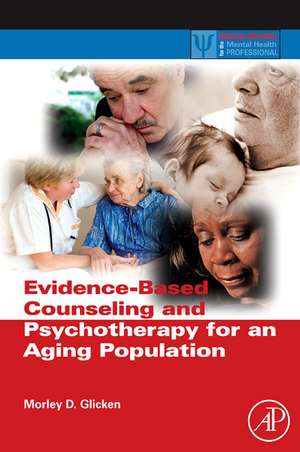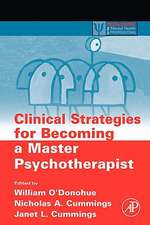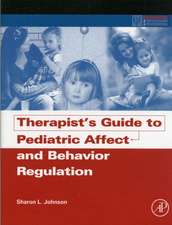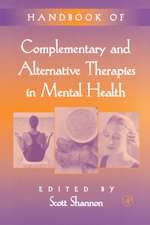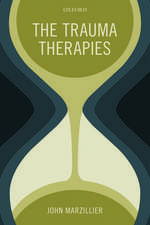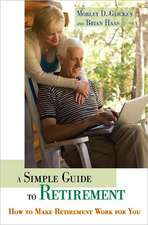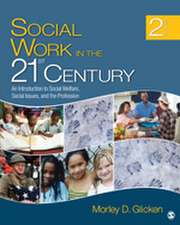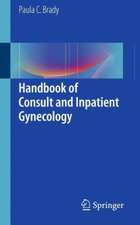Evidence-Based Counseling and Psychotherapy for an Aging Population
Autor Morley D. Glickenen Limba Engleză Hardback – 10 sep 2009
The proposed volume will provide practitioners with a state-of-the-art compilation of evidence-based practices in the assessment and treatment of elderly clients. As such it will be more clinically useful than anything currently on the market and will better enable practitioners to meet the demands faced in private and institutional practice. Focusing on the most current research and best evidence regarding assessment, diagnosis, and treatment, the volume covers difficulties including, but not limited to: social isolation/loneliness, elder abuse/neglect, depression and suicidal inclinations, anxiety disorders, substance abuse, dementias, prolonged bereavement, patients with terminal illnesses.
Because concrete research evidence is so often not used as the basis for practice, this book provides a timely guide for clinicians, social workers, and advanced students to a research-oriented approach to serving the mental health needs of elderly adults.
- Fully covers assessment, diagnosis & treatment of the elderly, focusing on evidence-based practicesConsolidates broadly distributed literature into single source and specifically relates evidence-based tools to practical treatment, saving clinicians time in obtaining and translating information and improving the level of care they can provide
- Detailed how-to explanation of practical evidence-based treatment techniques
- Gives reader firm grasp of how to more effectively treat patients
- Chapters directly address the range of conditions and disorders most common for this patient population - i.e. social isolation, elder abuse/neglect, depression, anxiety disorders, terminal illnesses/disabilites, bereavement, substance abuse, and dementias
- Prepares readers for the conditions they will encounter in real world treamtent of an elderly patient population
- Cites numerous case studies and provides integrative questions at the end of each chapter
- Exposes reader to real-world application of each treatment discussed
- Offers reader easy base for further study of subject, saving clinicians time
Preț: 614.92 lei
Preț vechi: 647.28 lei
-5% Nou
Puncte Express: 922
Preț estimativ în valută:
117.70€ • 127.89$ • 98.93£
117.70€ • 127.89$ • 98.93£
Carte tipărită la comandă
Livrare economică 21 aprilie-05 mai
Preluare comenzi: 021 569.72.76
Specificații
ISBN-13: 9780123749376
ISBN-10: 0123749379
Pagini: 450
Dimensiuni: 152 x 229 x 28 mm
Greutate: 0.88 kg
Editura: ELSEVIER SCIENCE
Locul publicării:United Kingdom
ISBN-10: 0123749379
Pagini: 450
Dimensiuni: 152 x 229 x 28 mm
Greutate: 0.88 kg
Editura: ELSEVIER SCIENCE
Locul publicării:United Kingdom
Public țintă
Practicing mental health and human service professionals working with elderly clients; graduate students in clinical, counseling, social work, and human services programsCuprins
Part 1: Psychosocial Perspectives of Aging1: Aging in America: Psychosocial Treatment Issues2: Successful Aging
Part II: Understanding Evidence-Based Practice3: An Explanation of Evidence-Based Practice and its Application to Clinical Work with Older Adults4: Using Evidence-Based Practice to Diagnose and Assess Psychosocial Difficulties in Older Adults5: Evidence-Based Practice and the Client-Worker Relationship with Older Adults
Part III: Evidence-Based Practice and Psychosocial Problems of Older Adults6: Love and Intimacy in Older Adulthood7: Work, Retirement, and Ageism in the Workplace8: Evidence-Based Practice with Older Adults Experiencing Social Isolation and Loneliness9: Evidence-Based Practice and Older Adults Experiencing Elder Abuse and Neglect10: Evidence-Based Practice with Depressed and Suicidal Older Adults11: Evidence-Based Practice with Older Clients Experiencing Anxiety12: Evidence-Based Practice with Older Adults Who Abuse Substances
Part IV: The Impact of Spirituality and Religion and the Significance of Self–Help Groups13: Evidence-Based Practice and the Significance of Religion and Spirituality in the Lives of Older Adults14: Evidence-Based Practice and the Effectiveness of Self-Help Groups with Older Adults
Part V: Evidence-Based Practice and Health Issues of Older Adults15: Evidence-Based Practice with Alzheimer’s Disease and Dementia16: Evidence-Based Practice with Disabilities, Terminal Illness, and Assisted Living17: Hospice and Bereavement
Part VI: Policy Issues and the Future of Care for Older Adults18: Final Words: Some Concerns about the Future of Older Adults
Part II: Understanding Evidence-Based Practice3: An Explanation of Evidence-Based Practice and its Application to Clinical Work with Older Adults4: Using Evidence-Based Practice to Diagnose and Assess Psychosocial Difficulties in Older Adults5: Evidence-Based Practice and the Client-Worker Relationship with Older Adults
Part III: Evidence-Based Practice and Psychosocial Problems of Older Adults6: Love and Intimacy in Older Adulthood7: Work, Retirement, and Ageism in the Workplace8: Evidence-Based Practice with Older Adults Experiencing Social Isolation and Loneliness9: Evidence-Based Practice and Older Adults Experiencing Elder Abuse and Neglect10: Evidence-Based Practice with Depressed and Suicidal Older Adults11: Evidence-Based Practice with Older Clients Experiencing Anxiety12: Evidence-Based Practice with Older Adults Who Abuse Substances
Part IV: The Impact of Spirituality and Religion and the Significance of Self–Help Groups13: Evidence-Based Practice and the Significance of Religion and Spirituality in the Lives of Older Adults14: Evidence-Based Practice and the Effectiveness of Self-Help Groups with Older Adults
Part V: Evidence-Based Practice and Health Issues of Older Adults15: Evidence-Based Practice with Alzheimer’s Disease and Dementia16: Evidence-Based Practice with Disabilities, Terminal Illness, and Assisted Living17: Hospice and Bereavement
Part VI: Policy Issues and the Future of Care for Older Adults18: Final Words: Some Concerns about the Future of Older Adults
